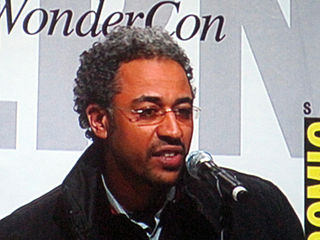A Quote by Jay Parini
Actually, a myth is a story that is not just not true, but it's a story that is especially true. And I think the myth of Jesus is especially true.
Related Quotes
It seems far simpler to go ahead and say that the epic is a fantastic myth, that happens to be true of the material Universe, that other myths are true in terms of their cultural meaning, and that there's absolutely no problem with holding more than one story, just as there's no problem with viewing the sunset in terms of planetary rotation and spectra and nuclear fusions one moment and as visual splendor the next.
Now the story of Christ is simply a true myth: a myth working on us the same way as the others, but with this tremendous difference that it really happened: and one must be content to accept it in the same way, remembering that it is God’s myth where the others are men’s myths: i.e., the Pagan stories are God expressing Himself through the minds of poets, using such images as He found there, while Christianity is God expressing Himself through what we call 'real things'.
There is a place where the human enters dream and myth, and becomes a part of it, or maybe it is the other way around when the story grows from the body and spirit of humankind. In any case, we are a story, each of us, a bundle of stories, some as false as phantom islands but believed in nevertheless. Some might be true.
Maybe this is all a bit of a myth, a willful desire to give each place its own unique aura. But doesn't any collective belief eventually become a kind of truth? If enough people act as if something is true, isn't it indeed "true," not objectively, but in the sense that it will determine how they will behave? The myth of unique urban character and unique sensibilities in different cities exists because we want it to exist.





































